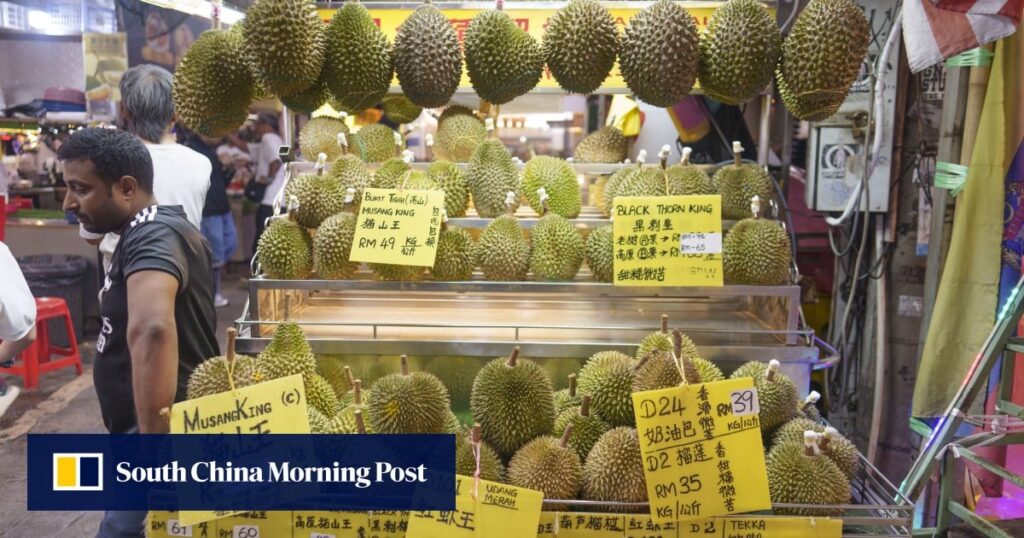The first shipments of fresh durians have arrived from Malaysia for the huge Chinese market, competing for demand from eager consumers accustomed to buying the prickly-smelling fruit from Thailand and Vietnam.
According to Malaysia’s state news agency Bernama, Deputy Minister of Agriculture and Food Security Arthur Joseph Krupp said on Saturday that exporters had begun shipping 40 tonnes of fresh durian in three phases.
China is the world’s largest buyer of durian, importing 1.4 million tonnes last year, 68 percent of which in US dollar terms came from Thailand.
But Malaysia met China’s phytosanitary requirements to ship fresh durian in June and may signal a focus on quality over quantity, said Lim Chin Kee, adviser to the Durian Academy, a Malaysian body that trains growers.
“Malaysian durian is considered a luxury item and export volumes are currently low and geared towards premium consumers,” Mr Lim said.
The first shipment of 20 tonnes arrived at Zhengzhou Xinzheng International Airport in Henan province on Sunday, according to China’s state-run Xinhua News Agency.
With some consumers willing to pay as much as 200 yuan ($28) a piece for the high-yield fruit, Chinese officials met with their Indonesian counterparts on Friday to discuss whether China could accept shipments from the giant Southeast Asian island.
Indonesian durians must also meet China’s phytosanitary protocols, which means a process of inspection, certification and possibly quarantine to ensure they are free of pests and diseases.
Xinhua reported in July that authorities in Jakarta want to boost exports of durian from Central Sulawesi, and have eyed China as a promising market “due to high demand for durian among Chinese consumers.”
Given the high demand, Indonesian durians could find a niche market in China.
Indonesia is waiting for China to issue a “protocol” following years of talks, the Jakarta Globe reported on Saturday.
Foreign Minister Retno Marsudi met her Chinese counterpart Wang Yi in Beijing on Friday to discuss the issue, the paper said.
Lin Song, an economist at ING Greater China, said lack of compliance with Chinese hygiene standards could be hindering exports from Indonesia.
“The processes and procedures for monitoring and ensuring quality standards have yet to be agreed upon and this is likely the main reason for the shortage of durian imports into China,” Song said.
“If the negotiations are successful, I think Indonesian durian could find a niche market in China given the high demand.”



